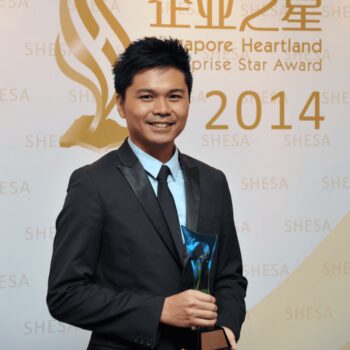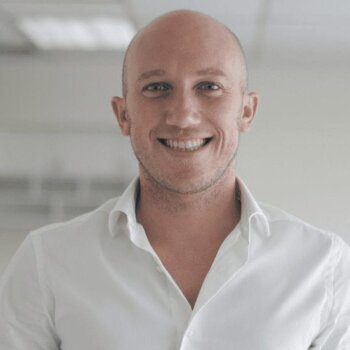(Women on Top in Tech is a series about Women Founders, CEOs, and Leaders in technology. It aims to amplify and bring to the fore diversity in leadership in technology.)
Today’s interview is with Victoria L. Edison. Victoria is the Chief Risk Officer at PayNearMe. PayNearMe is the electronic cash-transaction network that enables consumers to pay rent and utility bills, repay loans, buy tickets, make online purchases and do much more with cash.
Previously, Victoria was the Chief Risk Officer and VP of Operations for SALT, a mobile payment technology company headquartered in South Park, San Francisco.
What makes you do what you do?
Fintech is a relatively new space. It requires a varied skill set in order to navigate both extensively regulated landscape of financial services, and also constantly evolving environment of technology. Because of my background in both areas, I found myself well suited to take on the challenges of straddling both worlds. As the Chief Risk Officer for PayNearMe Inc., a privately held Silicon Valley payment company, my range of responsibilities covers regulatory compliance, privacy and security, and risk management.
PayNearMe Inc. provides financial technology to consumers, businesses, government organizations and nonprofits. Our three core offerings from a robust money movement platform that provides secure, real-time bill payments for consumers, an extensive network of retail locations for businesses to collect cash payments and bill presentment technology for financial services companies. Like a typical fintech company, PayNearMe prides itself on creating products and services that help consumers and businesses, but it is also vital that we manage risk at an acceptable level and maintain the strictest compliance with laws and regulations The challenges and opportunities in this industry, keeping these factors in balance on a daily basis, are what keep me excited about going to work every day.
How did you rise in the industry you are in?
My story is in many ways a typical immigrant story in America, with a few distinctive wrinkles. In 1988, I arrived in San Francisco as one of five participants in the very first foreign exchange high school program from the People’s Republic of China. It was supposed to be a one-year exchange program, and at the end of the school year, I was due to return to China to begin my college education.
In the spring of 1989, the pro-democracy student demonstration broke out in Tiananmen Square. I had been very outspoken in my community about the demonstrations and what they meant for China, and just before the end of my year, I was advised to stay in America. There had been rumors about returning students being questioned and arrested upon arrival. Things were not looking good back at home.
I went from being the first group of Chinese high school exchange students to the first group of high school political refugees. At the time, I barely spoke English. I felt unprepared but it was exciting to also start a brand new life on my own in a new country.
I attended college at San Jose State University and worked three jobs to support myself. By the time I started working after college, the U.S. government issued green cards to all Chinese students stranded in America as a result of the Tiananmen demonstration.
Like many foreign-born students with a limited grasp of English, I got an accounting degree. Before graduation, I took and passed the CPA exam and became a CPA while working for PriceWaterhouseCoopers (PWC). At PWC, I received training and transitioned into SAP system implementation. I discovered a love for programming and system administration. As you can imagine, that field had few women in it, especially in the early 1990s.
In the late 1990s, one of my projects was with the largest card brand network—at that time, a privately held company–Visa. I was fortunate enough to be working on the Gramm-Leach-Bliley Act (GLBA) compliance effort, which was the very first regulatory compliance effort financial services companies were faced with.
Soon the Payment Card Data Security Standards (PCI DSS) were developed, which eventually became the industry standards for any company that accepts credit card as a form of payment. To me, regulatory compliance and risk management were the necessary building blocks to operating a successful financial services company. As the liaison between my employer and the five federal regulatory agencies, I gained the exposure to regulatory expectations. I learned that to innovate in a regulated space while not losing sight of regulatory requirements.
I continued to work in large multi-national and public companies for a while until 2013 when I thought it was time to take what I had learned and apply it in a new setting. A small fintech start-up in San Francisco was where I landed.
Why did you take on this role/start this startup especially since this is perhaps a stretch or challenge for you (or viewed as one since you are not the usual leadership demographics)?
This is my second position as the Chief Risk Officer for a fintech company. Startup companies pose a very difficult set of challenges, but at the same time, the opportunities to create something from the ground up is not an experience you want to miss. I consider myself very fortunate to be able to work for a company that strives for innovation while fulfilling real needs of real people. Most consumers will know us by our two consumer products. The first, PayNearMe, enables cash users to pay bills at 20,000 trusted retail locations that include 7-Eleven®, Family Dollar®, Fidelity Express and ACE Cash Express stores. This service is important because it offers fast, convenient, affordable bill payment for the 67 million Americans who are unbanked or underbanked, any of whom rely heavily on cash. The second product offering is Prism Money, a free financial management and bill payment app that empowers consumers to see bank balances, track paychecks and bills, and pay bills using debit/credit cards and ACH, all in real-time, right from the app. Our third product, called Prism Platform Services, enables financial services companies and financial institutions like banks to integrate robust bill presentment and same-day payment capabilities into their existing products – this one helps consumers in a more roundabout way, by ensuring that the financial institutions serving them are able to use the best technology when showing them a view into their finances.
To be able to solve issues in an industry like this one, which did not really exist years ago, is a once-in-a-lifetime experience.
To take a position in a smaller company is, of course, not without risk. It requires a certain creative personality to take that leap of faith and really go for it. Also, I’m in risk management, so I understand better than anyone the risk that not all startup fintech companies make it. But if it’s a solid company with great products and great people to work with, you just have to leap sometimes. No risk, no reward.
As for demographics, this is the San Francisco Bay Area – I don’t think to be a female and Asian is really a disadvantage. It’s a very progressive environment, especially in Silicon Valley, where there are many other minorities and women in leadership positions, so I really feel it’s a place where meritocracy wins.
Do you have a mentor that you look up to in your industries or did you look for one or how did that work?
I’ve always looked for mentors. During my first six years as a consultant in the Big Four, career development was very important and you were assigned a mentor.
Several of these mentors remain in my life as friends. As a woman, Asian, and not a native speaker of English, being resourceful is important, and having mentors as resources and guides makes your life easier.
Over the course of my career, I have learned that having mentors is no longer just about career advice or navigating work situations. Having mentors means you have someone to turn to for help with questions that have no easy answers, or for which no answers are readily available, and to get perspective. They don’t have to be in your field and they don’t have to be more technical-savvy – by a certain point, you are probably the subject matter expert anyway. None of us live on an island. Find your own tribe. What they can bring is wisdom and a considered, trusted the second opinion.
I’ve also benefited greatly through professional associations. I am involved with W.net, a professional woman’s organization for financial service industries and through it, I’ve met some wonderful women leaders in the fintech space. Gloria Colgan and Carol Grunberg, board members at W.net, are two very impressive women and veterans of the fintech industry, and I consider them my mentors. I’m also on the board of the Bay Area Ethics and Compliance Association, where I’ve met some wonderful peers whom I consider to be my mentors.
At my current company, our General Counsel and SVP of Compliance and HR, Allison Amadia, is a great mentor. She’s also a “woman on top!” My hiring manager Scotty Perkins has this incredible combo of knowledge of business requirements and technology implementation. I’ve always appreciated his smarts and mental agility.
Seek out people with different skillsets, especially those who see things differently from yourself — they will help you grow by challenging what you think and perceive. Truth be told, there is no shortage of talented female leaders in Silicon Valley and the San Francisco Bay Area in general. You just need to reach out and find them.
How did you make a match if you did and how did you end up being mentored by him?
I’ve found it can be lonely at the top. And there are many people who actually feel the same way. Networking is important because it gives you the opportunity to learn from others and see how things are done in other organizations. As female leaders, we can find peers by networking in professional organizations that attract other female leaders, and from there, go out and have lunch or coffee with them, and find opportunities to bond with one another outside of work.
You’d be surprised what you can achieve together. We often think that mentoring is a process through which we enhance our career development, but that’s too narrow. In addition to giving you career guidance, a good mentor can inspire you to become a better person, a better leader, a more compassionate human being. It’s best to find a few mentors if you can because each person will teach you something new.
Now as a leader how do you spot, develop, keep, grow and support your talent?
The most important asset to a company is its talent. Good people are very difficult to find. Once you find them, you have to do what you can to grow, develop and, most importantly, retain them (a more valuable they become to you, the more valuable they are to others). In a company culture where people are valued, you will see greater commitment and productivity, which leads to more innovation, better stock values and a more successful company.
Culture is important. When you have a healthy and happy culture where people are empowered, they will work hard and it creates a positive feedback loop system as others will follow suit. So the first thing leaders need to do is to find talent that shares the same mindset, give them the freedom to grow and expand their technical skills, and continually give feedback in an honest fashion. You will be surprised by how much people want to see the organization succeed and work as hard as they can if they feel empowered and supported.
Do you consciously or unconsciously support diversity and why?
Having only lived in the Bay Area since my arrival in America, but worked as a consultant in different places around the country, I see a huge difference in terms of diversity in the Bay Area compared to other areas. California is the first minority-majority state. In Silicon Valley, approximately 14 percent of leaders are Asian. In my industry, though, there are still a lot more men than women. I have found my way through this, but I know that’s an issue for many women.
To me, diversity is a sign of healthy meritocracy. A more diversified talent pool will give us different perspectives, and innovation is borne of different perspectives. It helps if you put women and ethnic minorities in senior leadership positions because other women and ethnic minorities will see that there is a career path for them to pursue.
What is your take on what it takes to be a great leader in your industry and as a general rule of thumb?
All the great leaders I’ve met in my industry are the ones who are positive, genuinely compassionate people with strong convictions. One of the reasons that I enjoy working at my company is that there are a group of very strong leaders in the organization, led by a remarkably talented CEO, Danny Shader. When you foster a positive and supportive culture, known as ‘the tone at the top’, it trickles down.
Fintech is a relatively new industry. It introduces technology that often destroys the current way of doing things in traditional institutions such as banks, and that requires professionals who understand risk and compliance but are also good at solving problems at a technology and usability level. To be a good leader, you need to appreciate and balance both sides of things, understanding both how to stay ahead of technology while staying compliant with laws and regulations. A great leader understands this is a careful balance.
Advice for others?
In the past year alone, our business has grown substantially and we now work with major organizations such as Comcast, the IRS and state agencies. There will be even more partnership announcements coming up in the next several months and I’m excited to be a part of it all. In my spare time, I like to serve the members of Bay Area Ethics and Compliance Association and bring more folks in the Risk and Compliance fields together.
If there was anything that I have learned, it is that there is no linear path to a career. Where you start out and where you end up will almost certainly be different (except for the occasional full circle). In my opinion, the most important thing is to stay engaged and educated about your field. Don’t treat your job as a paycheck, but as an opportunity to learn something new every day. Think back to your middle school years, where every day you were learning something new. You were old enough to learn deeply and retain it but not so old that you were burned out or jaded about school. We are at the forefront of a greater innovation. Fintech has a lot more to show in the coming years.
With the incoming new administration, there will be changes in the regulatory space. Things may change, but stay informed and that will help manage risks and changes as they come. Continue with your field learning, but always be curious about learning new things, even if it’s not immediately adjacent to your field. You never know, it just may come in handy someday.
To learn more about PayNearMe, please see http://paynearme.com/en/.
I am a huge fan and cheerleader of Women Leaders — If you know of an AMAZING Woman Founder, CEO, Leader in Tech or you are one yourself — Write me here.
AMPLIFY Conscious Business Leadership with me.






























